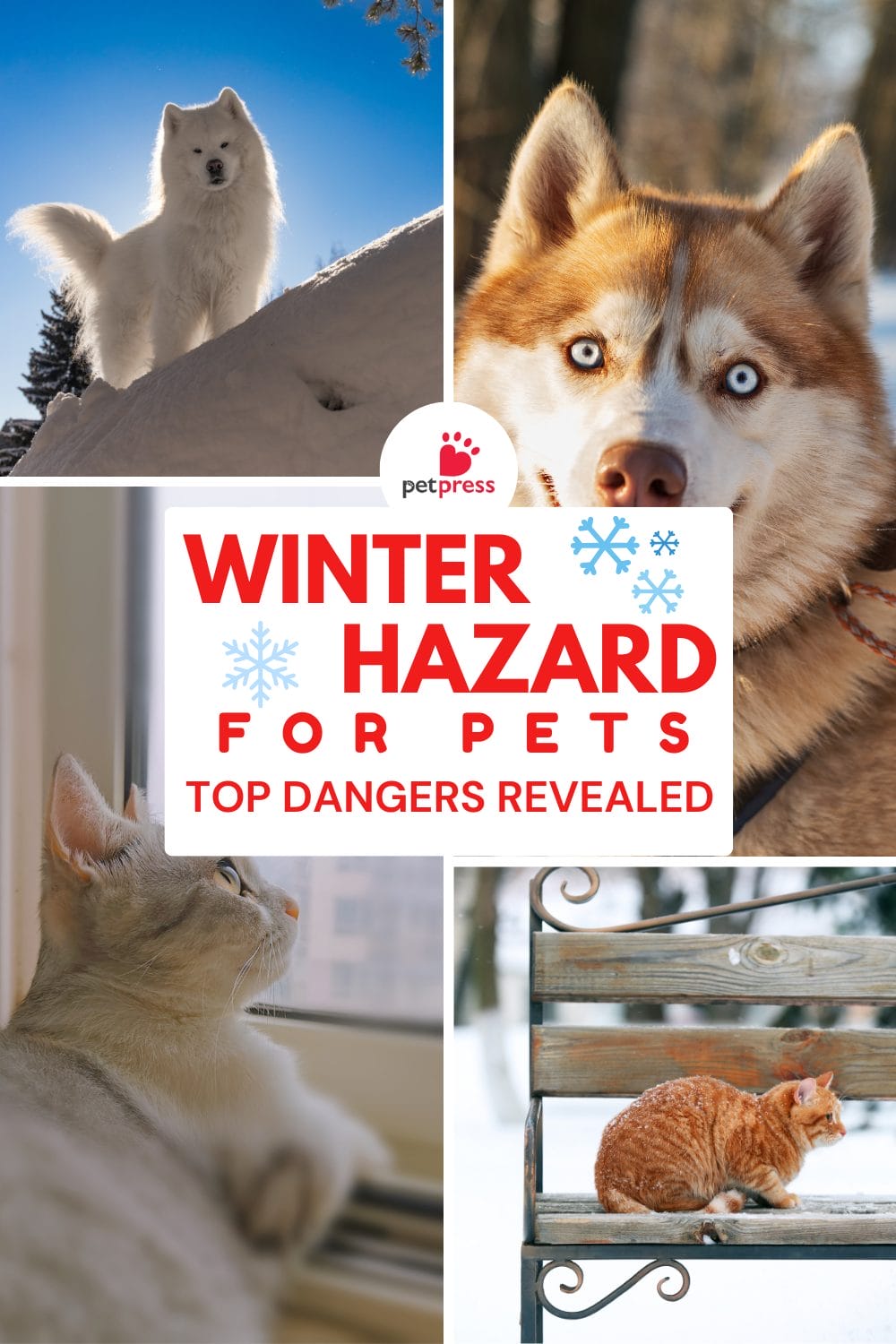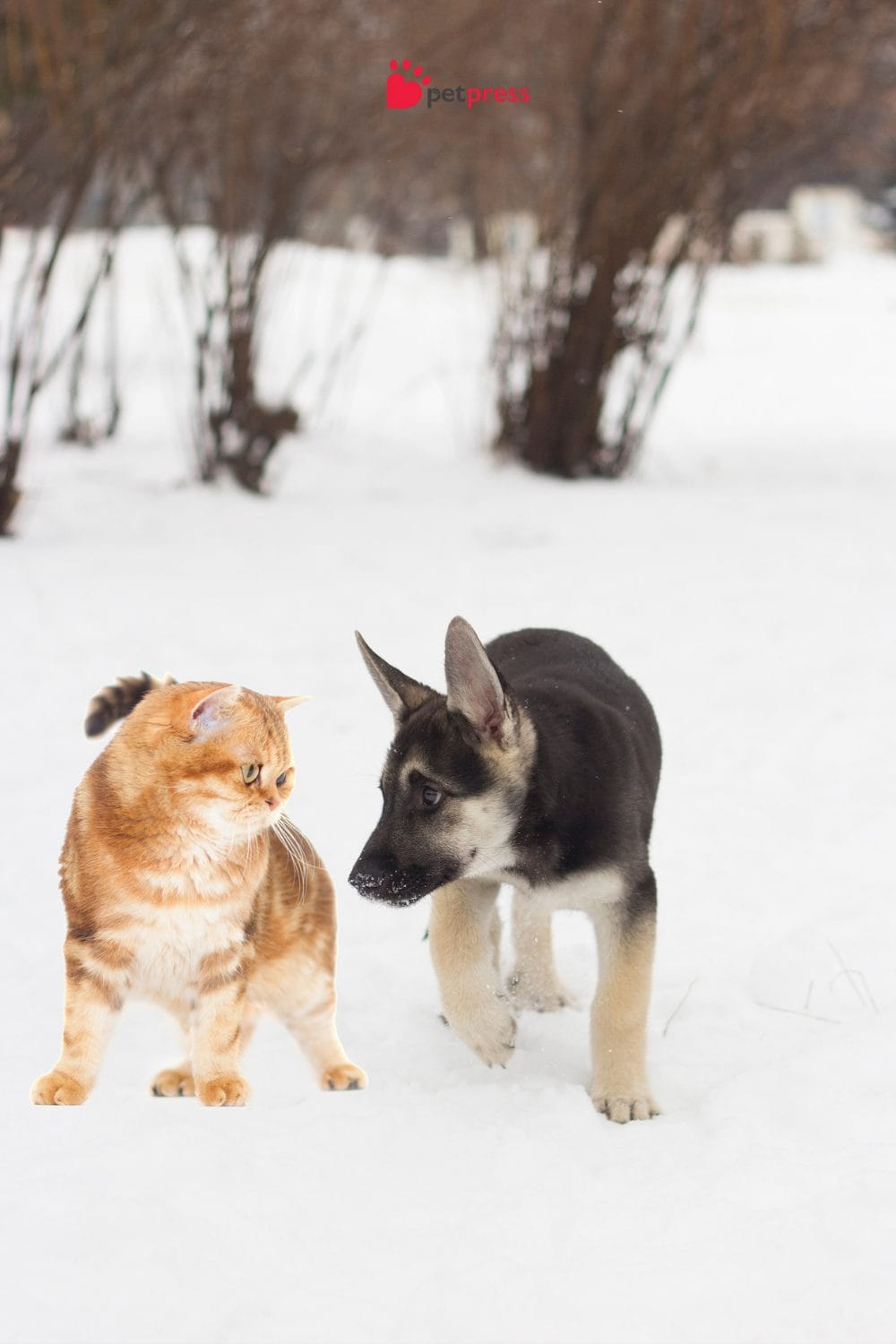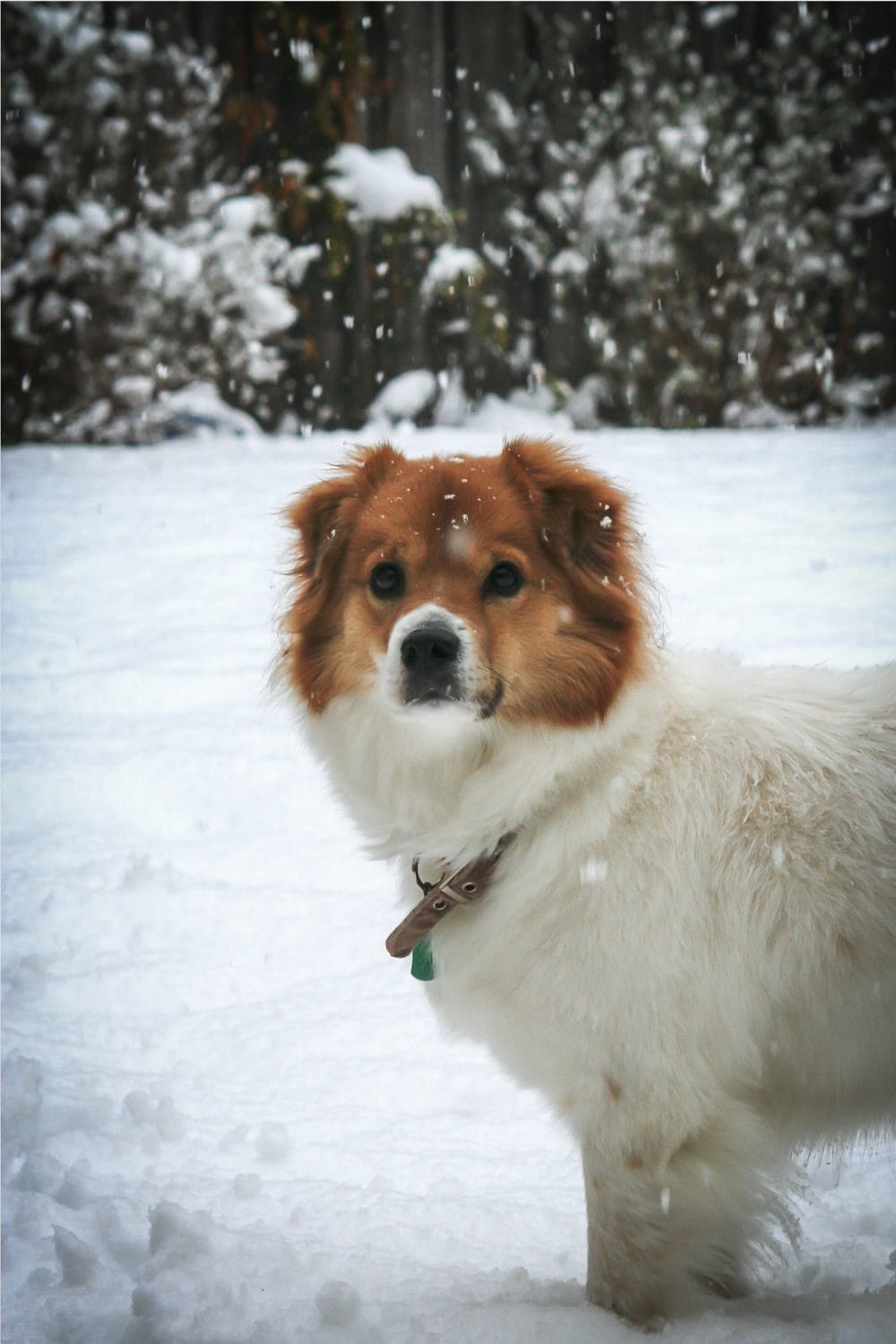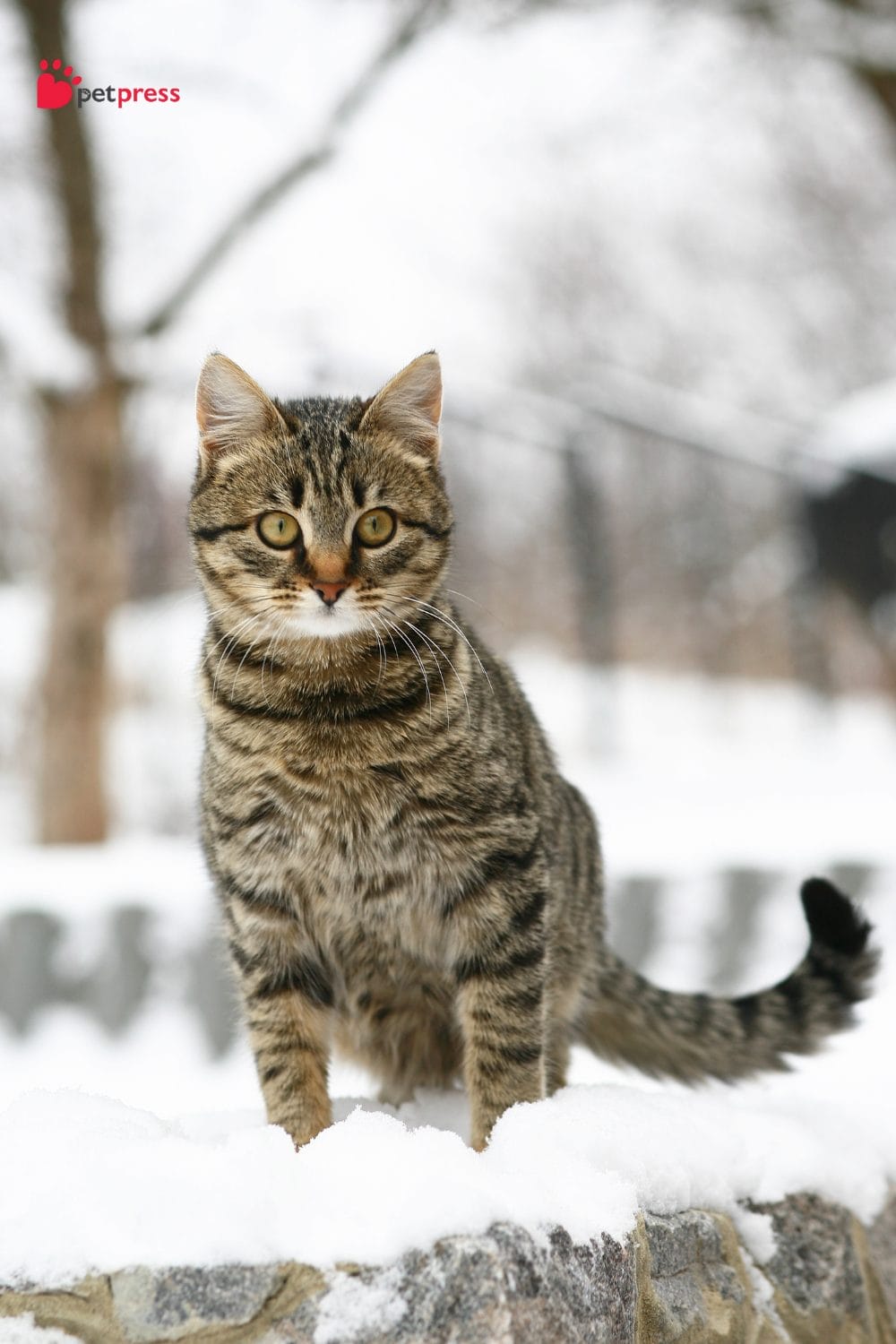
Winter turns landscapes into snowy playgrounds, but it also brings winter hazards for pets that can be serious. As temperatures drop, our furry friends face dangers that aren’t around during the warmer months. It’s crucial for pet owners to recognize these risks to keep their animals safe and happy.
Understanding these winter hazards for pets is essential. Pets rely on us for their safety, so knowing what to watch out for can prevent accidents and health issues. Let’s make sure our pets enjoy the winter as much as we do by keeping them out of harm’s way!
Cold Weather Risks
Even hearty breeds can struggle when the mercury plunges. Knowing the risks can keep your pets safe in cold weather.
1. Frostbite: The Cold Bite
Frostbite happens when your pet’s skin freezes from exposure to very cold temperatures. It typically affects ears, paws, and tails. Protect your furry friends from this painful condition by understanding it better.
Signs of Frostbite in Pets:
- Pale or blue-tinged skin
- Ice on the body
- Pain when you touch their skin
Keeping a close watch on your pet’s body language and comfort levels can help prevent the harsh effects of frostbite. Make sure to provide a warm, cozy spot for them at home during the chilly months.
2. Hypothermia: More Than Just Chills
Hypothermia in pets can occur when they are exposed to cold temperatures for a prolonged period. It’s more than just your pet feeling cold; it can be life-threatening.
Hypothermia happens when a pet’s body temperature falls below normal. It can lead to serious health issues, including frostbite, and in severe cases, it can be fatal.
Symptoms to watch for:
- Shivering excessively or, in severe cases, not shivering at all
- Weakness or lethargy
- Pale or blue gums
By keeping these tips in mind, you can help protect your pets from the dangers of cold weather and ensure they stay safe and cozy all winter long.

Toxic Dangers
Winter introduces risks to pets, including common yet harmful substances like antifreeze. As pet owners, it’s vital to understand these dangers to protect our furry friends.
Antifreeze: Sweet but Deadly
Antifreeze contains ethylene glycol, which is highly toxic to pets but tastes sweet, making it tempting for them to lick. Just a small amount can cause severe kidney damage or even be fatal.
Pets can come into contact with antifreeze from leaks on a garage floor or driveway. Containers left open or spills not cleaned up quickly also pose significant risks.
By understanding the dangers of antifreeze and taking proactive steps to protect our pets, we can help ensure they stay safe and healthy throughout the winter season.
Salt and De-Icers: Hidden Hazards
When pets walk on salted roads, the chemicals can stick to their paws. If they lick their paws, they ingest these harmful chemicals, which can lead to stomach upset or more serious health issues.
Instead of traditional salt or chemical de-icers, try pet-safe alternatives. Products labeled as safe for pets won’t harm their paws or health. Always clean your pet’s paws with a warm cloth after they come inside.
These simple precautions help ensure your pets stay safe while navigating the challenges of winter.

Outdoor Safety
When the snow falls, it’s a magical time for pets to play outside, but it’s crucial to keep safety in mind. Winter can pose unique challenges and risks for our four-legged friends during outdoor adventures.
Lost in the Snow: Prevention Tips
Pets can easily lose their way in snowy, unfamiliar terrain. Here’s how to keep them safe:
- Always use a leash on walks to prevent pets from straying too far.
- Update their ID tags and microchips in case they do get lost.
Knowing where your pets are and how to find them can prevent a lot of stress and danger.
Safe Play in the Snow
Playing in the snow is fun, but safety should always come first:
- Keep play sessions short to avoid overexposure to cold.
- Watch for signs of distress, like whining or shivering, which might indicate your pet is too cold.
These simple steps ensure your pet has fun without risking their health in winter conditions.

Indoor Safety During Winter
As we cozy up inside during winter, it’s important to ensure our homes are safe havens for our pets. From warm spots to hidden dangers, here’s how to keep your furry friends safe and snug.
Keeping Your Home Safe and Warm for Pets
- Ensure pets have a warm place away from drafts to sleep. A cozy bed in a warm room is perfect.
- Use pet-safe space heaters, and never leave pets unsupervised near open fires or portable heating units.
Dangers Inside the House in Winter
- Antifreeze can be a hazard if it spills inside garages or basements. Always clean up spills immediately.
- Rodent poisons and other pest controls are used more in winter. Keep these far from pet-reachable areas.
By taking these precautions, your pet can enjoy a safe and cozy winter indoors with the family.
Conclusion
As we’ve explored, winter brings with it a number of hazards that can be dangerous to our pets. From the chilling threats of frostbite and hypothermia to the hidden perils of antifreeze and indoor toxins, it’s critical to stay vigilant. Keeping our pets safe requires attention and care, particularly during the colder months.
Remember, winter hazards for pets are preventable with the right knowledge and actions. Ensure your home is warm and secure, and keep an eye on your furry friends while they play outside. It’s about making their safety a priority, just as they make our lives so much brighter.
Let’s embrace the season responsibly and ensure our pets enjoy the winter as safely as possible. Spread the word, share your tips, and let’s all contribute to a pet-safe season!
FAQs
Most dogs are sensitive to temperatures below 32°F (0°C). Always observe your dog for signs of discomfort in the cold and limit time outdoors when temperatures drop too low.
Yes, cats can get frostbite, particularly on their ears, paws, and tail. It’s best to keep cats indoors during extreme cold snaps to protect them.
Provide a warm, insulated bed away from the drafts, and consider adding extra blankets during colder nights. A pet-safe heated bed is also an excellent option for extra warmth.
Antifreeze is highly toxic to pets. If you suspect your pet has ingested antifreeze, contact your veterinarian or an emergency animal hospital immediately.
Yes, but it might be necessary to shorten the duration and intensity of outdoor activities. Always ensure your pet is dressed appropriately with a coat or sweater if they are sensitive to cold.
- Does Cat Litter Melt Ice? The Complete Guide to Winter Safety - January 30, 2026
- Happy Tail Dogs: Understanding This Common Canine Condition - January 29, 2026
- How Cold Can Outdoor Cats Handle? Feline Winter Safety - January 27, 2026


GIPHY App Key not set. Please check settings